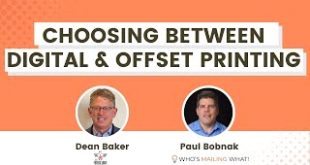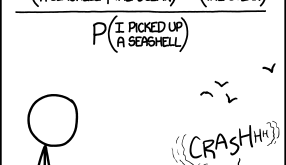In this episode, I talked with Dean Baker, CEO of the Phoenix Group of Companies, a single-source provider of print solutions from concept to completion. Timecodes: 0:00 - Intro 0:41 - Dean’s origin story - how he came to be involved in direct mail 3:11 - The services Phoenix Group of companies provides 7:33 - Things marketers should keep in mind when choosing between digital vs offset printing 11:12 - How can print be sustainable? 14:53 - Some good ways to keep postage and paper...
Read More »Markets are only a sub-set of economic life
from Ken Zimmerman (originally a comment) Economic life is the activities through which people produce, circulate and consume things, the ways that people and societies secure their subsistence or provision themselves. Activities by which communities sustain themselves. ‘[T]hings’ is, however, an expansive term. It includes material objects, but also the immaterial: labor, services, knowledge and myth, poems, religion, names and charms, and so on. In different times and places, different...
Read More »BETTY DEAN BAKER WINS
Ms. UMBA
Read More »Dumb and Dumber — the Chicago economics version
from Lars Syll Some years ago, in a lecture on the US recession, Robert Lucas gave an outline of what the New Classical school of macroeconomics today thinks on the latest downturns in the US economy and its future prospects. Lucas shows that real US GDP has grown at an average yearly rate of 3 per cent since 1870, with one big dip during the Depression of the 1930s and a big — but more minor — dip in the recent recession. After stating his view that the US recession that started in 2008...
Read More »How to Unf★ck America | Trailer
This series is all about solutions. Learn more at http://unf-ckamerica.com Over the last four decades, the US economy has done quite well for the top 1%, but it has been stagnant for most Americans. This was not an accident, nor the natural workings of the market and certainly not an inevitability. US policies have been deliberately structured since 1980 to redistribute income upwards. In other words, the system has been rigged. Dean Baker shows us how public policy can be deployed to...
Read More »How to Unf★ck Intellectual Property
Dean Baker tells the dirty secret of the great billionaires of the modern age: they wouldn’t exist without intellectual property (IP), that is the copyright and patent monopolies guaranteed to private actors by the government. IP laws have been expanded and strengthened in recent years, making patent & copyright monopolies longer and stronger and enabling the vast fortunes of billionaires in computers, software, pharmaceuticals, medical equipment etc. Baker diagnoses the role of...
Read More »A coherent alternative has to be proposed
from Nikolaos Karagiannis and Issue 94 RWER The practical use of the term “neoliberal” exploded in the 1990s, when it became closely associated with two developments. One of these was financial deregulation, which would culminate in the 2008 financial crash and in the still-lingering euro debacle. The second was economic hyper-globalization, which accelerated thanks to free flows of finance and to new, more ambitious types of trade agreements. Financialization and hyper-globalization have...
Read More »Yanis Varoufakis on the irrelevance of mainstream economics
from Lars Syll [embedded content] Varoufakis is undoubtedly right — there is indeed something about the way mainstream economists construct their models that obviously doesn’t sit right. One might have hoped that humbled by the manifest failure of its theoretical pretences during the latest economic-financial crises, the one-sided, almost religious, insistence on axiomatic-deductivist modelling as the only scientific activity worthy of pursuing in economics would give way to...
Read More »Machine age musings on algorithmic growth theory
from Peter Radford Don’t mind me. I am just thinking out aloud… That we live in a Machine Age is indisputable. Our lifestyles depend entirely upon the mediation of machines. Without them modernity collapses back to whatever existed in the prior ages and we surrender most of what we currently cherish. And it is important to use the phrase “machine age” because other phrases such as Industrial Age and so on limit us. Some say we are now entering a Digital Age, but this too is a...
Read More »Frank Ramsey — a portrait and a critique
from Lars Syll Mainstream economics nowadays usually assumes that agents that have to make choices under conditions of uncertainty behave according to Bayesian rules, axiomatized by Ramsey (1931) and Savage (1954) — that is, they maximize expected utility with respect to some subjective probability measure that is continually updated according to Bayes theorem. If not, they are supposed to be irrational, and ultimately — via some “Dutch book” or “money pump” argument — susceptible to...
Read More » Real-World Economics Review
Real-World Economics Review






